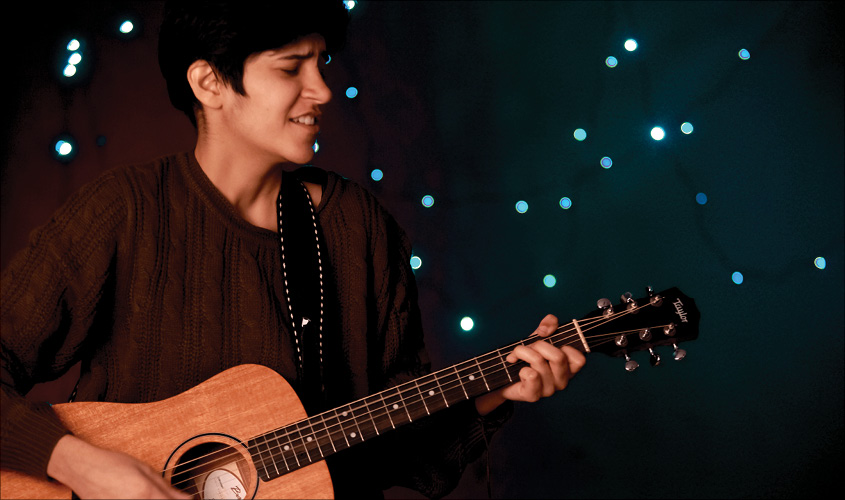Despite the stigma surrounding queer artists, Janvi Anand has carved a niche for her in the music world. She talks to Anindya Tripathi about her journey, inspiration and Damien Rice.
Q. What prompted your interest in music?
A. I feel it was somehow always in me. My parents recall me dancing to Michael Jackson’s ‘Thriller’ when I couldn’t even walk at the age of 6 months. When I was about 2/3 years old my uncle got me a toy keyboard and that was probably my favourite toy. I think I was six when my older sibling started learning the keyboard for a few months and then just left the instrument so it became mine. There was no turning back from
Q. Tell us something about your upcoming projects.
A. At the moment I have taken a break. I have written some new music over the last 3 years which I want to test. But honestly, I feel it isn’t enough. So I want to write some more. Maybe, I am just waiting for inspiration to strike me. When I usually feel stuck like this, I go back to music education and start studying teaching again to revise the concepts. That’s where I am at. I do perform a few shows every now and then though.
Q. How difficult is it to be an independent artist with no major label to back them? How difficult is the competition in the industry?
A. I don’t want to be associated with a major label until and unless I have my own audience set-up and hence prefer to be independent. Though being an independent artist is difficult if you have a good team, some actively supporting friends and a lot of luck, succeeding isn’t hard after all. You do need good music of course. Competition is very tough. It’s great because you get to push your own limits.
Q. Do you think queer artists still face stigma?
A. Definitely! More than stigma I think is the gender stereotypes in a patriarchal society. When someone specifies “female” artists needed they often want a “beautiful” girl with long flowy hair who would wear a dress and serenade their guests. The art and musicality come much later. Imagine being a queer artist on top of all this. There are a few venues who support irrespective, but the venues across this country are very limited.
Q. What inspires you each day? Who is your role model?
A. I don’t have a role model per say. But I am a very big fan of Damien Rice. I was lucky to watch him in action last year in Delhi. There are a lot of artists and specific songs which really influence me. As far as inspiration is concerned, music is all I know, whatever little that may be. I have thought of doing other things in life but that just makes me want to kill myself. So yes, music is the inspiration.
Q. It is not easy for Indian kids to pursue their passion, was convincing your parents a difficult task?
A. Though it isn’t easy for students to pursue music in India, I am constantly seeing it changing. That’s not just with the elite. A lot of musicians are providing international quality music at affordable prices to improve the quality of music education in India.
My parents were thankfully supportive. Though they wanted me to finish my bachelor’s and get a job even if it meant teaching music. But they understand where my passions lie and support me and are proud of what I do. They just want me to have a stable life.
Q. How important is artistic freedom in the current political climate?
A. I cannot emphasise that enough. Art has always been one of the biggest influencers and historic evidence to remember after a certain time period.

